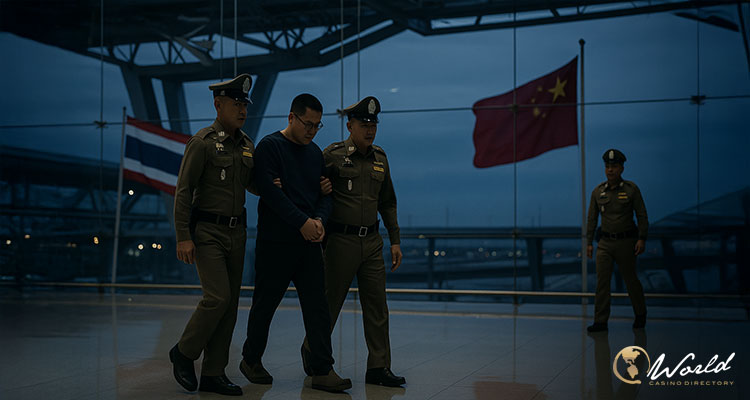After a prolonged legal struggle spanning more than three years, Thailand has approved the extradition of alleged gambling tycoon w to China. The 43-year-old Chinese national, who also holds Cambodian citizenship, has been in Thai custody since his arrest in August 2022 following an Interpol red notice issued at Beijing’s request.
Thai Court Upholds Extradition Order
The Thai Appeals Court upheld an earlier ruling ordering his extradition within 90 days. According to officials, She faces charges in China for operating over 200 illegal online gambling platforms, as well as for alleged fraud and money laundering activities. A Thai police statement confirmed that She would be sent to China to stand trial, marking the conclusion of a complex international legal case.
“This demonstrates the high level of our cooperation,” said Zhao Mengtao, a counselor at the Chinese embassy in Bangkok, expressing gratitude to Thai authorities for their handling of the matter.
Authorities allege that She ran an extensive criminal network across Cambodia, Myanmar, Thailand, and the Philippines, building a business empire under the Yatai Group umbrella. He is accused of founding 239 illegal gambling websites and using casinos in Myanmar as hubs for criminal operations.
She became infamous for developing Shwe Kokko, a vast $15 billion project on the Thai-Myanmar border promoted as a resort city. Despite its glossy marketing, international reports — including from the U.S. Treasury and United Nations Office on Drugs and Crime (UNODC) — describe Shwe Kokko as a center for fraud, human trafficking, drug trade, and prostitution.
According to WRAL News, a 2024 UNODC report said She “is known to have a robust business and investment portfolio across Southeast Asia, and particularly Cambodia, Myanmar, Thailand and the Philippines, spanning industries including real estate, construction, entertainment and blockchain technology.”
The U.S. and British governments have sanctioned both She and his company Yatai for their alleged involvement in regional criminal enterprises. The U.S. Treasury described Shwe Kokko as “a resort city custom built for gambling, drug trafficking, prostitution, and scams targeting people around the world.”
Denial of Allegations and Political Undercurrents
Throughout his detention, She has consistently denied any wrongdoing. In written statements from his Bangkok prison cell, he insisted his company was merely “an urban developer” and not involved in criminal activities. In an interview earlier this year, he reiterated that Yatai “would never accept telecom fraud and scams,” though he admitted that such operations might infiltrate Shwe Kokko since the city was “completely open to anyone.”
She’s legal team had earlier challenged the constitutionality of Thailand’s extradition law, but the Constitutional Court dismissed the case. His lawyer, Sanya Eadjongdee, described the extradition process as “unusual,” without providing further details.
The timing of She’s extradition coincides with a historic state visit by Thailand’s king to Beijing, the first by a reigning Thai monarch. The case highlights the deepening cooperation between Thailand and China on tackling transnational crime, especially online gambling and cyber scams.
Background: From Hunan to the Heart of Southeast Asian Gambling
Born in Hunan Province, China, in 1982, She left school at 14 and taught himself computer programming. He reportedly moved to the Philippines in his early 20s and began working in the online gambling industry, which is banned in China. In 2014, a Chinese court convicted him of running an illegal lottery.
Over the next decade, She expanded his ventures throughout Southeast Asia, obtaining Cambodian and Myanmar citizenships and developing major construction and entertainment projects. However, these investments increasingly came under scrutiny amid reports of cyber fraud operations and human exploitation in the region’s gambling compounds.
The UN estimates that hundreds of thousands of people have been trafficked into scam centers in Southeast Asia, many lured by fake job offers and then forced to defraud victims online. Most of the victims and perpetrators are Chinese nationals, which has fueled Beijing’s recent crackdown on such operations. In recent months, Chinese courts have sentenced multiple individuals connected to similar crimes to death.



